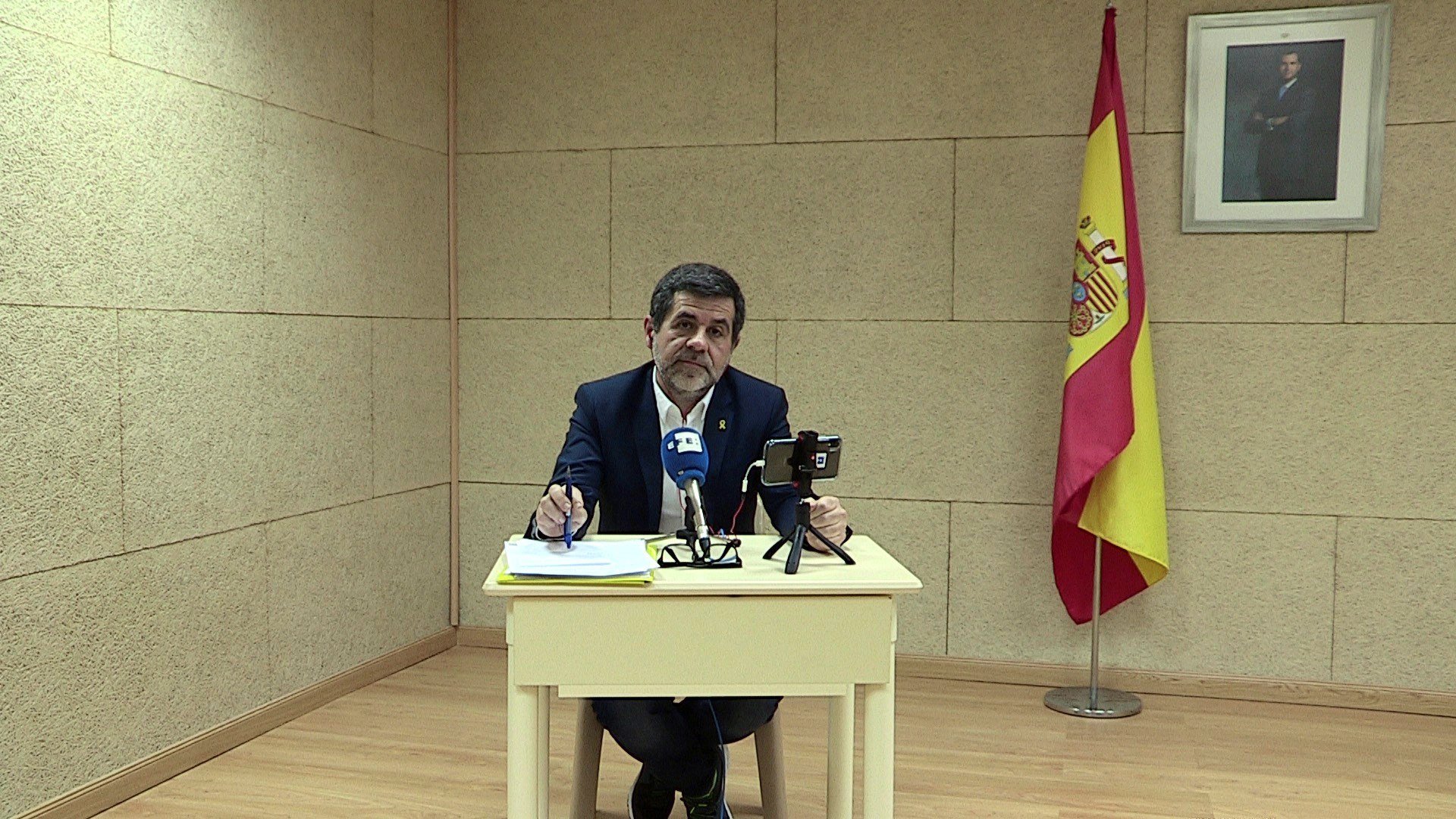It had been 419 days since Jordi Sànchez could address the Catalan people. The last time he did so was at a rally during the campaign for the Catalan election on 21st December 2017 through a voice message he'd recorded from prison. For that, he was punished by prison authorities. This Tuesday, the head of Junts per Catalunya's list of candidates, was able to speak for almost an hour and answer journalists' questions in a press conference organised by Spanish news agency EFE. He spoke by videoconference from a room in Soto del Real prison, next to a Spanish flag and a photo of the king. He had two clear messages: one of conciliation towards PSOE and one for ERC to "stop looking backwards".
Far from the aggressiveness shown by some of his colleagues during this campaign for the 28th April general election, Sànchez today adopted a moderate tone and called for everyone to behave responsibly. He also encouraged them to look forwards instead of offering sterile criticisms over everything that's not been possible so far. He presented this election as a new chance to act upon the 2017 referendum, after the failed attempt that year. This time, he says the recipe involves "dialogue, agreement and stability". In other words: for voters to give them enough strength in the Congress to set conditions for a Pedro Sánchez government. "What's at stake is who sits down to negotiate with PSOE [to invest a government] and with what strength [behind them]".

The ideal scenario for the former president of the ANC is not only to keep PSOE in government, but for them to enjoy stability: "PSOE needs a stable partner. I'm convinced they'll modify the things they're saying during the campaign", he said, like refusing to consider a self-determination referendum for Catalonia. Sànchez's words could be seen as an offer to be this "stable partner" on two conditions: that their support isn't a blank cheque, as with the motion that brought Sánchez to power last summer, and that the prime minister commits to working to solve the situation in Catalonia with a referendum in mind as the solution. He also made it clear that they won't demand a referendum before the new government is invested. And he added that "nobody wants a strong and stable Spanish government more than us".
"We don't have red lines, we have convictions. We won't impose the solution, but we won't accept restrictions", he said on the subject of the right to self-determination. "A referendum has to be on the table", he said, while leaving the topics of the date and specific details up for discussion. He expressed conviction that "PSOE will accept one way or another that this problem has to be solved". Sànchez, who is currently a deputy in the Catalan Parliament, has confirmed that, if elected, he'll leave his seat in Barcelona for the one in Madrid.
Pro-independence bridges
The chance for the candidate to speak and develop his ideas beyond the short letters he writes for campaign rallies has also given him the chance to look for peace and set a new path for his own supporters, recently engaged in an offensive against ERC. "This isn't about betrayals", he said, "we share many things, from the past and about the future". Despite noting he would have preferred a single pro-independence candidacy: "that's part of the past. We can't go backwards: we have to look forwards". As such: "I'm reaching my hand out for ERC, En Comú and the part of PSOE who want the deadlock to end to sit down with us to talk".

